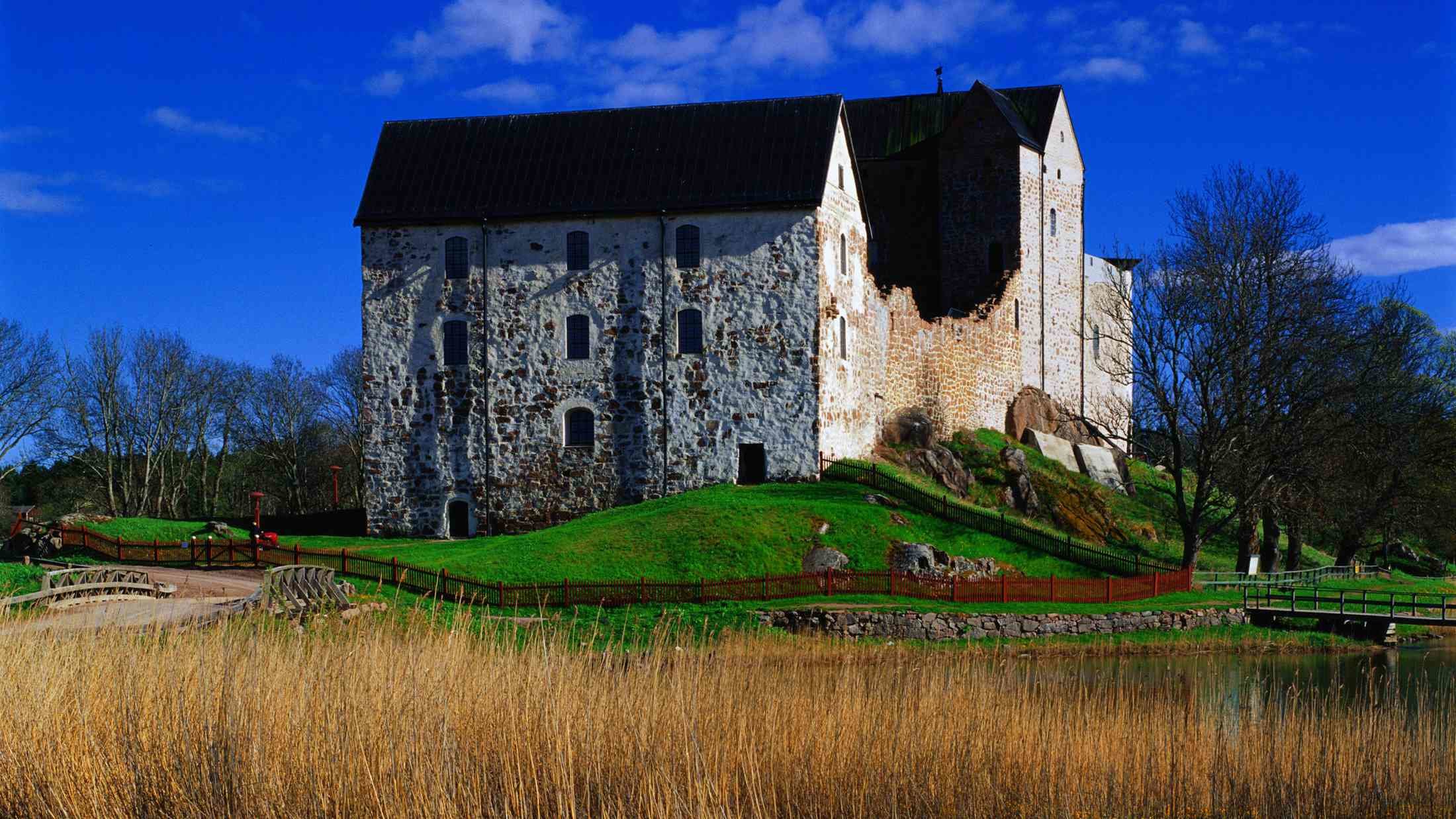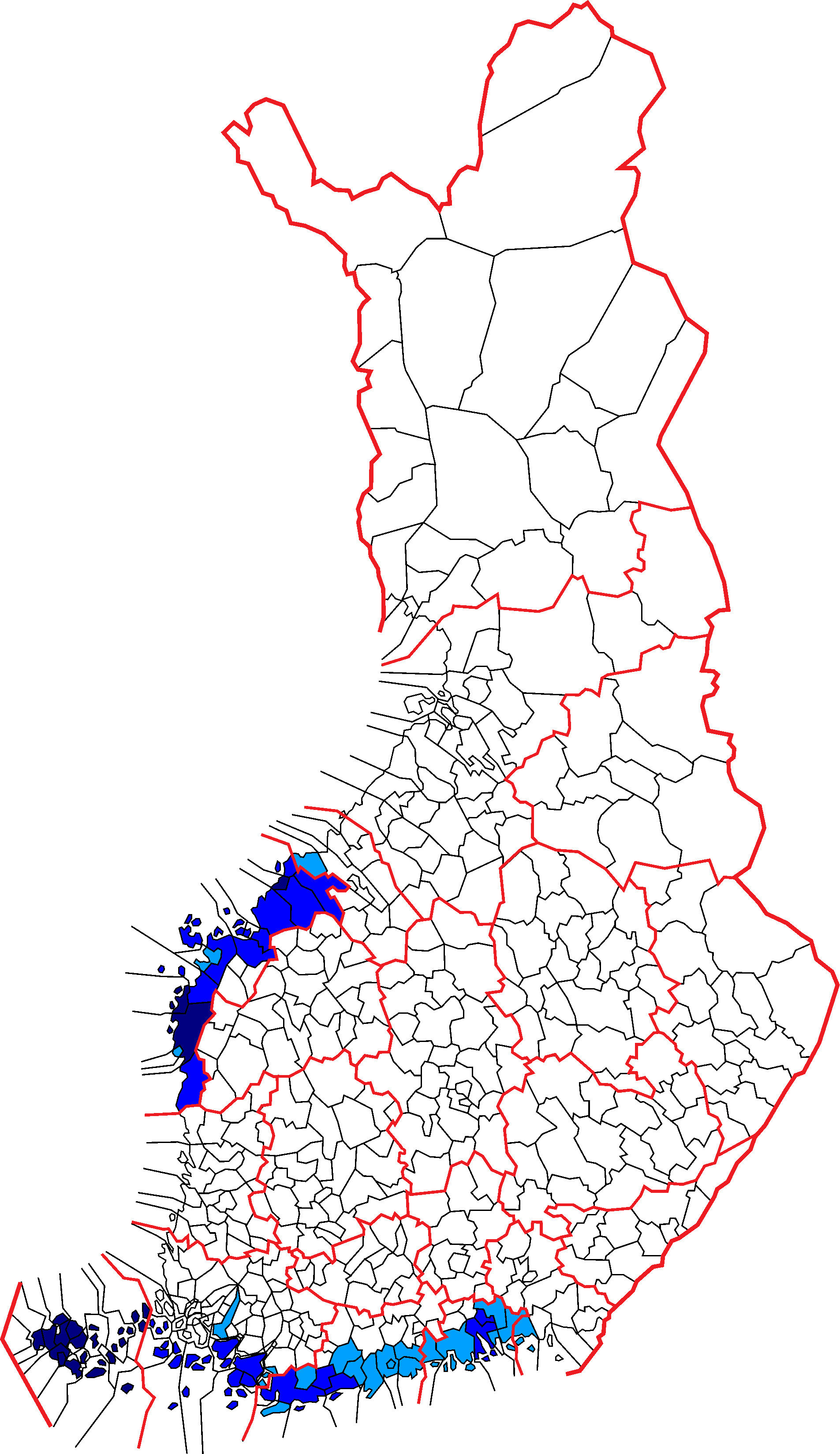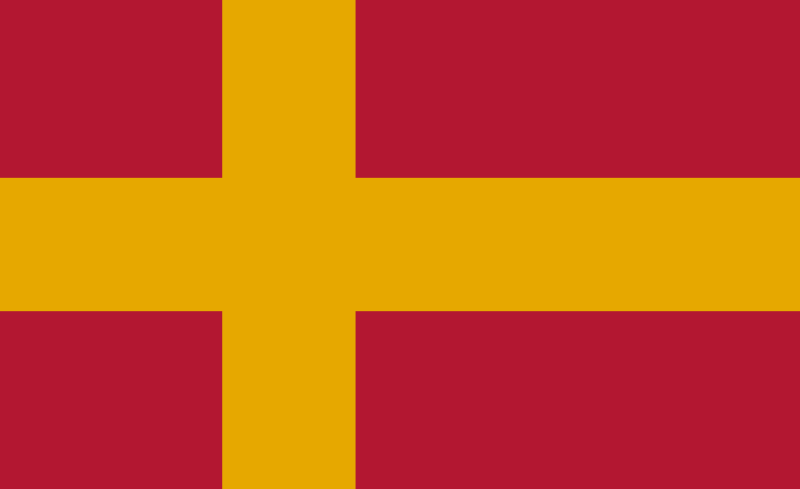The Finnish Swedes or Finland Swedes or the Swedish Speaking minority in Finland are a set of people formed by almost 300,0000 individuals (around 5.5% of the total Finnish population) who maintain a strong identity and consider themselves as a separate ethnic group. Some people say they are warmer, more open and friendly than the other Finns, but this is a subjective appreciation based on personal experiences.
Finnish Swedes speak a variation of the Swedish language called Finland Swedish and in some areas they still manage to keep some privileges associated to their differential facts. For instance, in the Åland archipelago they have their own Parliament and enjoy self-governance in internal affairs; Swedish is the only official language in the islands, young men are not called to military service and there exist some limitations for non-Swedish people to settle and to own land.
As a whole, the presence and influence of the Swedish speaking Finns in Finland has been decreasing during the last two centuries: at the beginning of the 19th century they were about 15% of the total population and in the early 20th they constituted approximately 10%. Among them were many members of the country's elite in the political, economic and judicial fields.

Åland Kastelholm Photo by: Visit Finland.
The book ‘Finland, a Cultural Encyclopedia’ published by the Finnish Literature Society explains that the Finnish Swedes live mostly in southern and western coastal areas and on the Åland Isles. These Finns are integrated into the Finnish Society and they don´t question their membership in Finland (they don´t claim for independence as for instance some Scottish or Catalonian people do), but also form a distinct cultural group with some important institutions of their own. And they seem to be very proud of that.
Two languages equally official
Due to their presence and former predominance in the country, the Finnish Constitutional Legislation states that both Finnish and Swedish are national languages of Finland. This makes Swedish an official language on both the national level and at local level. And this is the main reason why all Finns have to study Swedish at schools, the Finnish radio and TV broadcast also in Swedish and all citizens have the right to use Swedish when dealing with the administration.
 In that sense, Finland is a unique case in the world: no other country recognises a language spoken by such a minority group as official at the whole national territory. According to the book ‘Finland, a Cultural Encyclopedia’, this is because the Swedish-speaking Finns formerly constituted the leading lawyers of the country and –before and after the Finnish independence- they succeeded in establishing arrangements to gradually secure their identity.
In that sense, Finland is a unique case in the world: no other country recognises a language spoken by such a minority group as official at the whole national territory. According to the book ‘Finland, a Cultural Encyclopedia’, this is because the Swedish-speaking Finns formerly constituted the leading lawyers of the country and –before and after the Finnish independence- they succeeded in establishing arrangements to gradually secure their identity.
The Finnish Statistical Office (Statistics Finland) said that nowadays Swedish is the mother tongue for some 270,000 people in mainland Finland and about 25,000 more in Åland. They enjoy a literature of their own, press of their own, schools with Swedish as a language of tuition and even universities like Åbo Akademi in Turku. The Society of Swedish Literature in Finland was founded in 1885, and the Swedish People’s party in 1906.
An alternative for integration
The guide ‘Welcome to Finland’ published by the Ministry of Economic Affairs and Employment of Finland points out that integration in Swedish language can be an alternative for foreigners. Especially for those who reside in a region where most people speak Swedish, if the person already speaks Swedish or has relatives who speak it.
Speaking Swedish can be also an advantage when searching for a job and some cities organise integration courses for immigrants in Swedish. According to the law, foreigners have the right to choose Swedish or Finnish as a language for integration.
The culture of Swedish speakers in Finland is highly heterogeneous and dependent on social class differences. The culture of those living on the coast, where the earliest towns were settled, or those who descended from the administrative lawyers of the country, has certain middle-class urban characteristics. On the other hand, the culture of the farmers and seafolk has resulted in a strong agrarian folk culture and a preference for occupations in trade and commerce.
 The flag of the Åland archipelago. Photo by: Susanne Nilsson.
The flag of the Åland archipelago. Photo by: Susanne Nilsson.
The national loyalty
Speaking in terms of feelings, the national loyalty of the Swedish speaking Finns lies with Finland. This means that they support the Lions (Lejonat, as they call the Finnish ice hockey national team) when they play against Sweden. Nevertheless, they also enjoy a culture of their own in their language. And that makes them a language group with a strong inner solidarity.
Literary works by Finnish authors have been published and spread beyond the country’s borders. The common language also made possible the growing flow of literature from Sweden to Finland. Finland-Swedish publishing companies also publish translations into Swedish of the most successful Finnish books and authors.
Both Finnish and Swedish speakers claim the Finland-Swedish writers and artists as their own. Johan Ludvig Runeberg, the Finnish national poet and writer of the national anthem, wrote in Swedish. The world famous composer Jean Sibelius, who contributed more than anyone else with his work to build the Finnish national identity, had also Swedish as his mother tongue.
For years there has been a long debate among foreigners about if there are many differences in the mentality of the Finnish Swedes compared to the rest of the Finns. What do you think about this issue? Have you met any Finnish Swedes? Please, leave your comments based on your personal experiences.

The flag of the Finnish Swedes.










